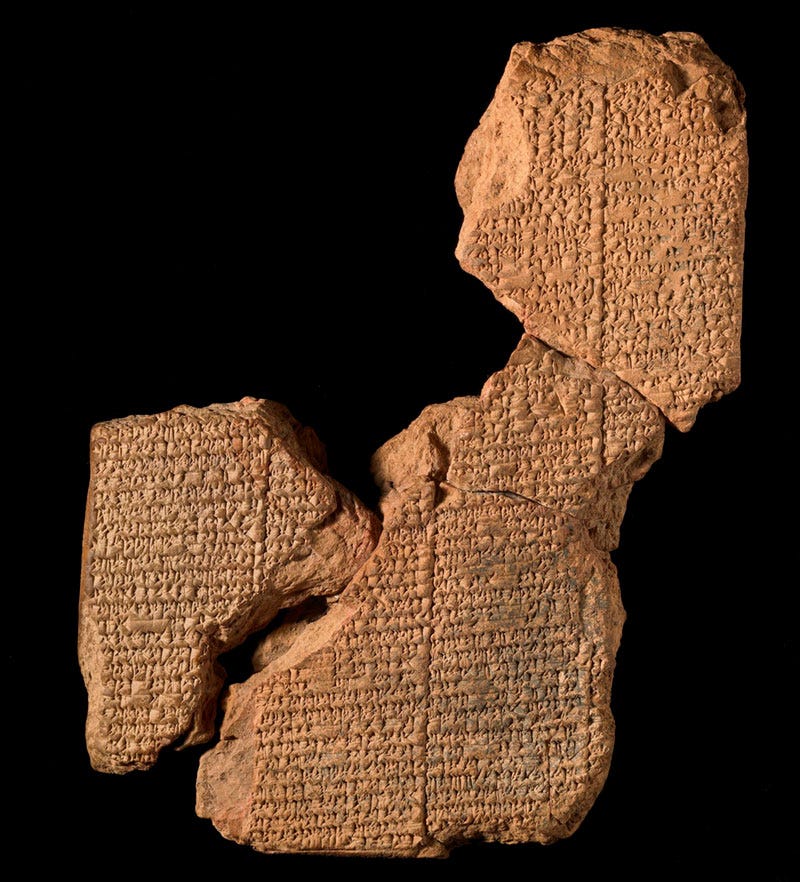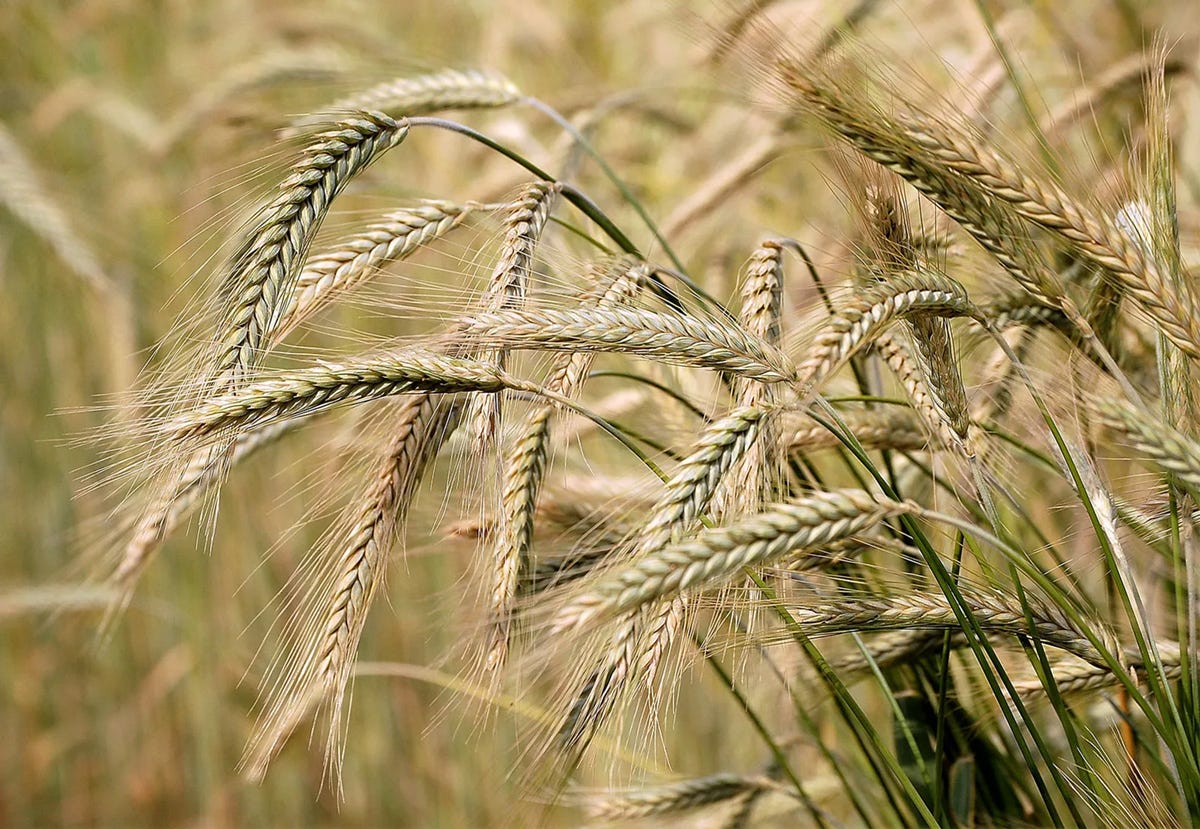Issue 31: the creation story flood that wiped out beer production
Learning about two of the world’s earliest creation stories and the amusing part our favourite alcoholic beverage plays in one of them.
I’ve recently started listening to the fabulous ‘Literature and History’ podcast. It’s created by Doug Metzger, a PhD in and teacher of literature, and is a journey through Anglophone literature from its roots in ancient times up to the present. The project, which began in 2016 (and is currently at episode 98 and the life and works of Saint Jerome, who lived from 347-420), was earlier this year described by LitHub as “the most ambitious literary podcast in the history of the world”.
What’s particularly unique and fun about Metzger’s approach is that each of his incredibly well researched episodes comes with a quiz – to encourage listeners to retain the knowledge they’ve just learned – and a comedy song.
And it’s what Metzger and I both thought was one of the funnier lines of the Bronze Age Mesopotamian epic, ‘Atrahasis’, which has inspired this issue of my newsletter.
But first, let’s set the scene:
I was vaguely aware that the creation story told in ‘Genesis’ – the first book of the Hebrew Bible and the Christian Old Testament – was not the original creation story. But it wasn’t until listening to episode two of Metzger’s podcast, called ‘Before the Flood’, that I became one of what he describes as “a tiny, bookish minority” to understand the texts that influenced it.
Those texts are 'Enuma Elish' and 'Atrahasis'. They are the creation and flood epics of Mesopotamia, which date back 3,800 years – making them 1,000 years older than ‘Genesis’.
I won’t try and retell in a few hundred words what Metzger expertly covers in his 71minute podcast – I highly recommend you listen to it yourself – but very, very briefly:
‘Enuma Elish’ is the story of the creation of the world, a war between the oldest gods and their grandchildren, and the role that the great Babylonian god Marduk played in this conflict.
‘Atrahasis’ is about why the gods created man, the great flood the wrathful gods made to purge the world, and the central figure, Atrahasis, a pious man who is probably an earlier version of Noah.

Metzger says:
“Civilization did not have a single spark and blaze forth from there… ‘Genesis’ did not appear out of nowhere… the ‘Enuma Elish’ and the ‘Atrahasis’ [may] seem like exotic preludes to more familiar stuff, [but] these are not colourful peripheral material. These are fragments of the beginnings of religion in the central Eurasian world as we know it. They are the narratives that Jews, and Christians, and Muslims can stand shoulder to shoulder and read together, a shared cultural tap root that lies behind the Abrahamic religions, and a reminder that while our theologies have differences from one another, these theologies come from the surprisingly cosmopolitan and interlinked bedrock of the Bronze Age."
The flood story in ‘Atrahasis’ has very close parallels with ‘Genesis’ chapters 6-9. But one of the differences is that humankind – created by the goddess Mami from clay and the blood and flesh of another god – was intended to be industrious. (In ‘Genesis’, it’s not until Adam and Eve leave Eden that they must survive by ‘the sweat of their brow’.)
One of the labours of humankind in the Mesopotamian flood story is making beer.
The flood is caused by the god Ellil, who is angered by the boisterousness of the human species – but it has unintended consequences.
‘Atrahasis’ recounts: “The gods joined [Mami] in weeping for the vanished country / She was overcome with heartache, but could find no beer.”
The flood had wiped out their labour force, and thus their supply of beer. The gods were feeling guilty about killing us all, but had nothing with which to drown their sorrows!
Metzger tells us that “Mesopotamian fiction is filled with oceans of beer. Mesopotamians preferred barley beer to the marshy waters of their irrigated fields, so it’s not too surprising that their deities drank a lot of alcohol, too.”
With the festive season now officially upon us – a time when we may indulge a little more heavily than usual in the Mesopotamian gods’ favourite beverage – I thought it was a fun time to share this tidbit from one of the world’s original creation stories, and Metzger’s comedy song about it.




